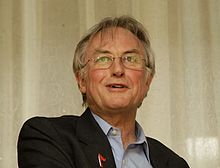Alternative medicine is any practice that aims to achieve the healing effects of medicine despite lacking biological plausibility, testability, repeatability or evidence of effectiveness. Unlike modern medicine, which employs the scientific method to test plausible therapies by way of responsible and ethical clinical trials, producing repeatable evidence of either effect or of no effect, alternative therapies reside outside of mainstream medicine and do not originate from using the scientific method, but instead rely on testimonials, anecdotes, religion, tradition, superstition, belief in supernatural "energies", pseudoscience, errors in reasoning, propaganda, fraud, or other unscientific sources. Frequently used terms for relevant practices are New Age medicine, pseudo-medicine, unorthodox medicine, holistic medicine, fringe medicine, and unconventional medicine, with little distinction from quackery.
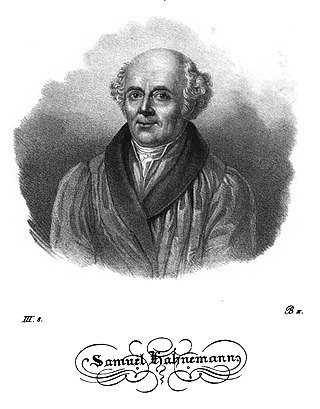
Homeopathy or homoeopathy is a pseudoscientific system of alternative medicine. It was conceived in 1796 by the German physician Samuel Hahnemann. Its practitioners, called homeopaths or homeopathic physicians, believe that a substance that causes symptoms of a disease in healthy people can cure similar symptoms in sick people; this doctrine is called similia similibus curentur, or "like cures like". Homeopathic preparations are termed remedies and are made using homeopathic dilution. In this process, the selected substance is repeatedly diluted until the final product is chemically indistinguishable from the diluent. Often not even a single molecule of the original substance can be expected to remain in the product. Between each dilution homeopaths may hit and/or shake the product, claiming this makes the diluent "remember" the original substance after its removal. Practitioners claim that such preparations, upon oral intake, can treat or cure disease.

Bach flower remedies (BFRs) are solutions of brandy and water—the water containing extreme dilutions of flower material developed by Edward Bach, an English homeopath, in the 1930s. Bach claimed that the dew found on flower petals retains the supposed healing properties of that plant. Systematic reviews of clinical trials of Bach flower solutions have found no efficacy beyond that of a placebo.

Scientific skepticism or rational skepticism, sometimes referred to as skeptical inquiry, is a position in which one questions the veracity of claims lacking empirical evidence. In practice, the term most commonly refers to the examination of claims and theories that appear to be beyond mainstream science, rather than the routine discussions and challenges among scientists. Scientific skepticism differs from philosophical skepticism, which questions humans' ability to claim any knowledge about the nature of the world and how they perceive it, and the similar but distinct methodological skepticism, which is a systematic process of being skeptical about the truth of one's beliefs.

Derren Brown is an English entertainer, mentalist, illusionist, and writer. Brown began performing in 1992, making his television debut with Mind Control (2000). He has since starred in several more shows for stage and television, including Something Wicked This Way Comes (2006) and Svengali (2012) which won him two Laurence Olivier Awards for Best Entertainment, as well as The Experiments (2011) which won him a BAFTA for Best Entertainment Programme at the 2012 awards. Brown made his Broadway debut with his 2019 stage show Secret. He has also written books for both magicians and the general public.
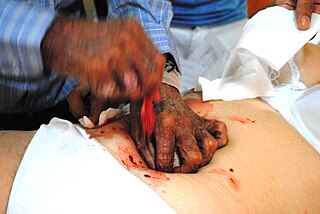
Psychic surgery is a pseudoscientific medical fraud in which practitioners create the illusion of performing surgery with their bare hands and use sleight of hand, fake blood, and animal parts to convince the patient that diseased lesions have been removed and that the incision has spontaneously healed.

Oscillococcinum is a homeopathic preparation marketed to relieve flu-like symptoms, although it does not provide any benefit beyond that of a placebo.
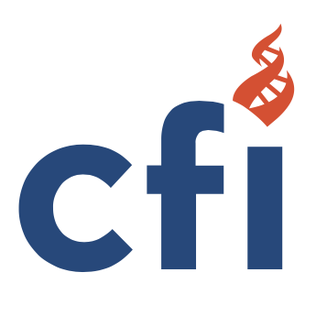
The Center for Inquiry (CFI) is a U.S. nonprofit organization that works to mitigate belief in pseudoscience and the paranormal and to fight the influence of religion in government.
Anthroposophic medicine is a form of alternative medicine based on pseudoscientific and occult notions. Devised in the 1920s by Rudolf Steiner (1861–1925) in conjunction with Ita Wegman (1876–1943), anthroposophical medicine draws on Steiner's spiritual philosophy, which he called anthroposophy. Practitioners employ a variety of treatment techniques based upon anthroposophic precepts, including massage, exercise, counselling, and administration of substances.

Steven Paul Novella is an American clinical neurologist and associate professor at Yale University School of Medicine. Novella is best known for his involvement in the skeptical movement as a host of The Skeptics' Guide to the Universe podcast and as the president of the New England Skeptical Society. He is a fellow of the Committee for Skeptical Inquiry (CSI).
In homeopathy, arsenicum album (Arsenic. alb.) is a solution prepared by diluting aqueous arsenic trioxide generally until there is little amounts of Arsenic remaining in individual doses. It is used by homeopaths to treat a range of symptoms that include digestive disorders and, as an application of the Law of Similars, has been suggested by homeopathy as a treatment for arsenic poisoning. Since the arsenic oxide in a homeopathic preparation is normally non-existent, it is considered generally safe, although cases of arsenic poisoning from poorly prepared homeopathic treatments sold in India have been reported. When properly prepared, however, the extreme dilutions, typically to at least 1 in 1024, or 12C in homeopathic notation, mean that a pill would not contain even a molecule of the original arsenic used. While Anisur Khuda-Bukhsh's unblinded studies have claimed an effect on reducing arsenic toxicity, they do not recommend its large-scale use, and studies of homeopathic remedies have been shown to generally have problems that prevent them from being considered unambiguous evidence. There is no known mechanism for how arsenicum album could remove arsenic from a body, and there is insufficient evidence for it to be considered effective medicine (for any condition) by the scientific community.

The efficacy of prayer has been studied since at least 1872, generally through experiments to determine whether prayer or intercessory prayer has a measurable effect on the health of the person for whom prayer is offered. A study in 2006 indicates that intercessory prayer in cardiac bypass patients had no discernible effects.
In homeopathy, homeopathic dilution is a process in which a substance is diluted with alcohol or distilled water and then vigorously shaken in a process called "succussion". Insoluble solids, such as quartz and oyster shell, are diluted by grinding them with lactose (trituration). The founder of homeopathy, Samuel Hahnemann (1755–1843), asserted that the process of succussion activated the "vital energy" of the diluted substance, and that successive dilutions increased the "potency" of the preparation, although other strands of homeopathy disagreed.

Bad Science is a book written by Ben Goldacre which criticises certain physicians and the media for a lack of critical thinking and misunderstanding of evidence and statistics which is detrimental to the public understanding of science. In Bad Science, Goldacre explains basic scientific principles to demonstrate the importance of robust research methods, experimental design, and analysis to make informed judgements and conclusions of evidence-based medicine. Bad Science is described as an engaging and inspirational book, written in simple language and occasional humour, to effectively explain academic concepts to the reader.
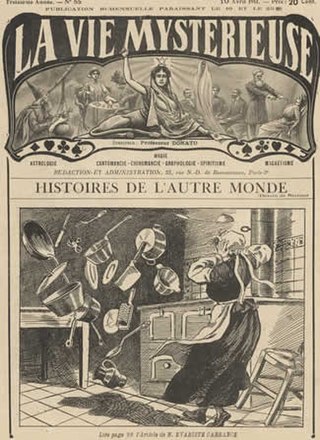
Telekinesis is a hypothetical psychic ability allowing an individual to influence a physical system without physical interaction. Experiments to prove the existence of telekinesis have historically been criticized for lack of proper controls and repeatability. There is no reliable evidence that telekinesis is a real phenomenon, and the topic is generally regarded as pseudoscience.
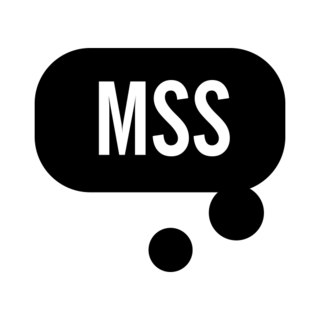
The Merseyside Skeptics Society (MSS) is a nonprofit organisation that promotes scientific scepticism in Merseyside and the United Kingdom. Founded in 2009, the society has campaigned against the use of homeopathy, challenged the claims of psychics, and hosts regular events in Liverpool, podcasts, and an annual conference in Manchester, QED: Question. Explore. Discover.

The Gesellschaft zur wissenschaftlichen Untersuchung von Parawissenschaften (GWUP) is a non-profit organisation promoting scientific skepticism, headquartered in Roßdorf, Germany. Its estimated membership in 2016 is 1300 who are scientists or laypersons interested in science. The GWUP annually hosts a conference with varying key subjects.
The infinitesimally low concentration of homeopathic preparations, which often lack even a single molecule of the diluted substance, has been the basis of questions about the effects of the preparations since the 19th century. Modern advocates of homeopathy have proposed a concept of "water memory", according to which water "remembers" the substances mixed in it, and transmits the effect of those substances when consumed. This concept is inconsistent with the current understanding of matter, and water memory has never been demonstrated to exist, in terms of any detectable effect, biological or otherwise.
